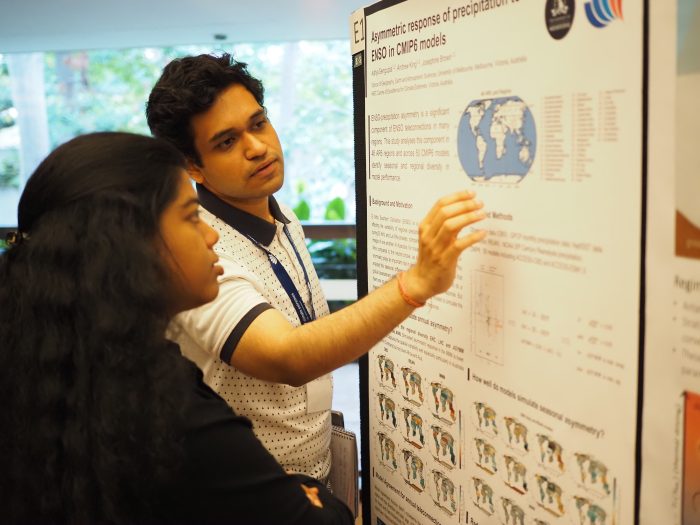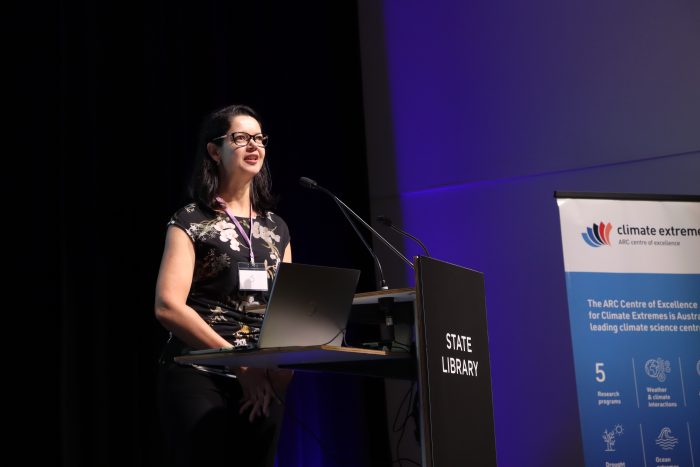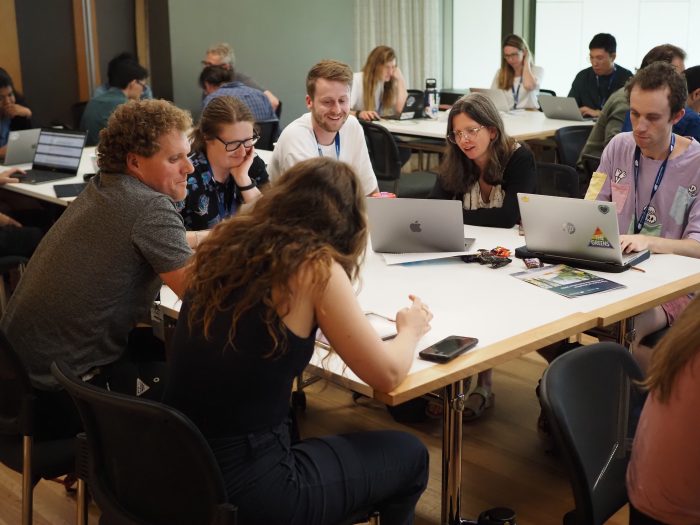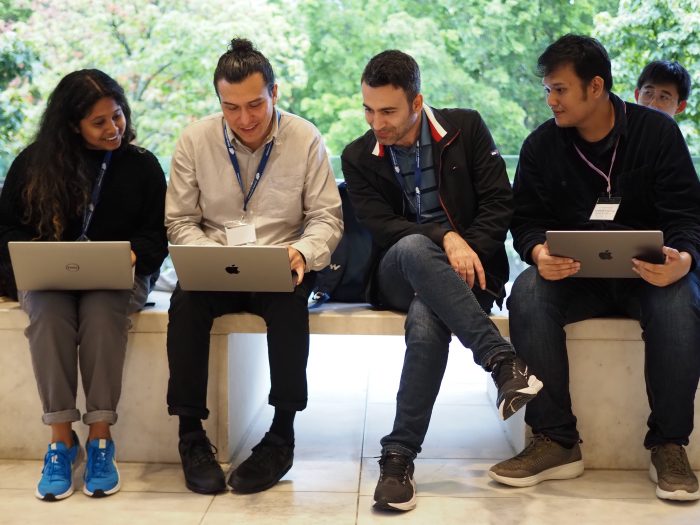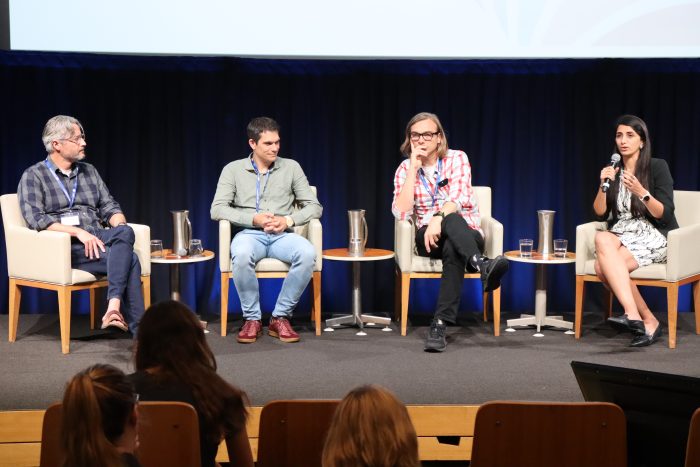Over 150 climate scientists gathered in Brisbane this month to celebrate their scientific advances and reflect on the past and future of their research fields.
Over four days, researchers from the ARC Centre of Excellence for Climate Extremes had the opportunity to present their latest scientific findings and attend various climate science talks and panel discussions. Topics ranged from understanding the predictability of droughts and extreme rainfall to exploring ‘climate surprises’, such as the recent heatwaves in the northern hemisphere.
Scientists also built skills in engaging with policy makers and the media and learned about science that has made a significant impact on the wider world.
During the afternoon’s parallel sessions, participants met in informal groups to discuss various topics ranging from LGBTQIA+ inclusion in climate science to machine learning. Some of them even took part in a yoga & meditation session.
Over 100 PhD students and postdocs attended the workshop and had the chance to meet some of the Centre’s alumni and learn more about their career journeys.
Nick Grosfeld, a PhD student at the University of New South Wales (UNSW) said: “I appreciated hearing from other researchers who have similar values and motivation to myself so I was very encouraged to see that there are careers possible for people who want to do science to contribute and benefit the community.”
The workshop was also an opportunity to reflect on the past and future of the Centre and celebrate our researchers’ achievements with several awards:
– “Best paper by a student” was awarded to Dr Hooman Ayat from the University of Melbourne for his important findings on rapid rain bursts in Sydney (more here).
– “Best Paper by an Early Career Researcher” was awarded to Dr Georgy Falster from the Australian National University for her work on the Pacific Walker Circulation (more here).
– The “Engagement and Impact Prize” was awarded to Ruby Lieber from the University of Melbourne for her outstanding communication skills around El Niño.
– The “Director’s Prize” was awarded to Dr Sanaa Hobeichi from UNSW for her expertise on machine learning and outstanding teaching skills.
This year’s annual workshop was held at the State Library of Queensland, from November 19 to 23. A total of 160 people attended the event, which featured 12 climate science talks, four panel discussions and three poster sessions, during which more than 110 posters were presented.
The annual workshop is our one time, each year, where senior researchers, technical staff, Centre portfolio leads, research fellows and PhD students come together in one place to discuss their research. The workshop creates energy, breaks down silos, creates new avenues for research and creates collaborations that will last many years. Solutions to big problems emerge at these events and set Australian climate science up for the next decade or two.
Andy Pitman, Centre Director
